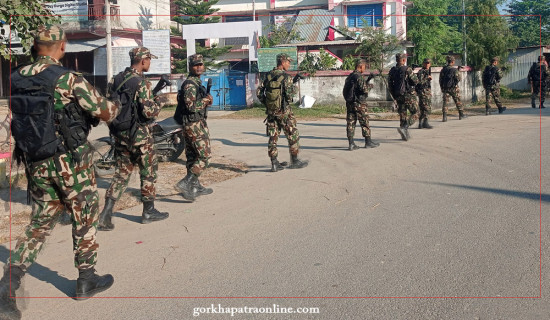- Wednesday, 4 February 2026
BRICS: Strong Voice Of Global South
Russian President Vladimir Putin stole the global limelight last week, showing that the West’s repeated attempts to isolate him has fallen flat as he has enough number of influential allies ready to create an alternative world order. Putin successfully hosted three-day 16th BRICS+ summit in the Russian city of Kazan from October 22 to 24. Themed ‘strengthening multilateralism for just global development and security, the summit has proved to be a diplomatic accomplishment for Putin for it was ‘the largest foreign policy event ever held’ in Russia. With the attendance of UN Secretary General Antonio Guterres at the summit, it received further credence that was an icing on the cake for the host.
The gathering of nine nations issued a 134-point joint declaration, calling for a more representative and fairer international order, and a reinvigorated and reformed multilateral system. They have decided to strengthen cooperation in the expanded BRICS under the ‘three pillars of political and security, economic and financial, cultural and people-to-people cooperation’.
BRICS expanding
It was the group’s first meeting since its expansion last year. In addition to Brazil, Russia, India, China and South Africa, the + members include Egypt, Ethiopia, Iran and United Arab Emirates. Now they account for more than 45 per cent of the world’s population, 35 per cent global economic output, and 40 per cent of world’s oil. More than 30 nations, including Thailand, Turkey, Azerbaijan and Malaysia — have applied for membership. This implies growing attraction towards BRICS as nations from the Global South are fed up with West’s hegemonic and paternalistic attitude.
One reason why the BRICS has got traction among many countries is that its mechanisms provide poor and developing nations easier access to finance, technology and opportunities for trade, investment and sustainable development. For instance, the New Development Bank has funded vital infrastructure projects in the Global South nations while enabling them carve out their own development paths and enhancing their representation in the global governance system.
One of the important features of the summit is the endorsement of the use of local currencies in financial transactions between BRICS nations and their trading partners. With a view to reducing dependence on US dollar, BRICS leaders have decided to strengthen the corresponding banking networks within their group to settle in local currencies in line with BRICS cross-Border Payment Initiatives (BCBPI). The international transactions in local currencies will be a big respite for Russia facing multitude of Western sanctions. It wants to create a new payment system that will serve as an alternative to the Brussels-based global bank messaging network - Society for Worldwide Interbank Financial Telecommunication (Swift). The BRICS members have also emphatically raised concerns about “the disruptive effect of unlawful unilateral coercive measures, including illegal sanctions.”
The BRICS leaders have committed to strengthening their solidarity and strategic partnership while calling for greater and more meaningful participation of emerging markets and developing countries (EMDCs) and least developed countries in global decision-making processes and structures. In view of the ongoing war in Russia-Ukraine deadly conflict, the declaration seeks relevant proposals of mediation and good offices, aimed at a peaceful resolution of the conflict through dialogue and diplomacy, and an immediate ceasefire in Gaza.
Putin told the roundtable meeting of some 30 nations that they “shared similar ambitions, values and a vision for a new democratic world order” and slammed the Western nations for ‘hoarding global wealth, goods, even concepts like human rights, climate change, and democracy’. The BRICS also offered a credible platform for the world leaders like Chinese President Xi Jinping and Indian Prime Minister Narendra Modi to express their views on international peace, security and development. They also utilised the occasion to renew and enhance bilateral relations.
Chinese President Xi, considered a crucial player of BRICS, outlined its five major goals – peace, innovation, green development, justice and closer people-to-people exchanges – for the ‘greater BRICS cooperation’. He said the BRICS was the world’s most important platform for solidarity and cooperation between EMDCs. On the other hand, Indian PM Modi attempted to assuage the concerns of West whether the BRICS was working to supersede the West-led institutions. Modi’s challenging position arises from his attempts to balance his ties with Russia and the US. He said, “We must be careful to ensure that this organisation does not acquire the image of one that is trying to replace global institutions, but reform them.”
Improved Sino-India ties
Xi-Modi meeting that took place in the wake of their agreement on military disengagement along their disputed border drew much attention of geopolitical watchers. The two leaders instructed their respective foreign ministers to work on the next steps of de-escalation and de-induction in the direction of sorting out boundary disputes and restoring peace along the border. The improved ties between India and China will have positive implications not only for Nepal’s diplomacy and economy but also other South Asian nations. Even the wheels of BRICS move fast if China and India resolve their discords and develop a common position on international issues and problems.
In his remarks, UN Secretary General Guterres noted that the BRICS could play an important role in strengthening and updating the peace mechanisms, including the UN Security Council and reforming the global financial system, which he described as ‘obsolete, ineffective and unfair’. Though quite tough, the BRICS holds potential to democratise the West-dominated global institutions and lending agencies. Its spirit of openness, inclusiveness and win-win cooperation makes it different from many other West-initiated institutions. It can be a powerful voice of the Global South to advance the global governance reforms, if its members are able to keep its solidarity intact and translate their collective vision of fair multipolar world into action.
(The author is Deputy Executive Editor of this daily.)
















